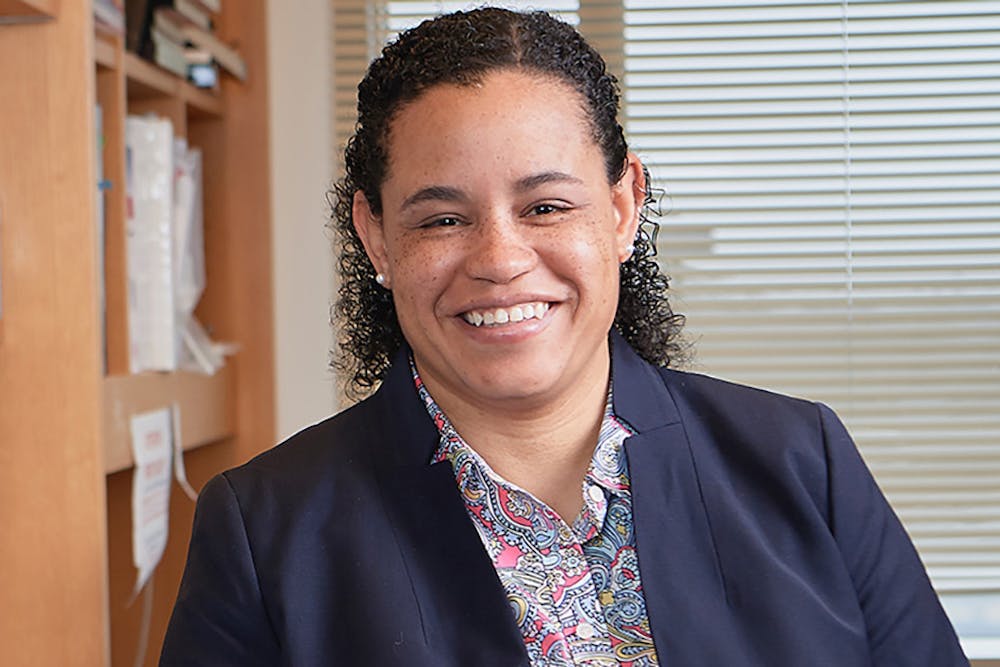Perelman School of Medicine professor Donita Brady received an award honoring scientists committed to breaking down systemic barriers against professionals and students from historically marginalized groups (Photo from Penn Today).
Perelman School of Medicine professor Donita Brady received the Ruth Kirschstein Award for Maximizing Access in Science from the American Society for Biochemistry and Molecular Biology.
The award — named for the first female director of an institute at the National Institutes of Health — honors scientists committed to breaking down systemic barriers against professionals and students from historically marginalized groups. Brady, who is Penn’s seventh presidential professor, has dedicated her career to expanding access to science.
The ASBMB Maximizing Access Committee chooses the recipient of the award. The winner is given a plaque, $3,000, and travel funding to present a lecture at the annual ASBMB meeting.
In an effort to broaden youth exposure to research and science education, Brady leads several exploration and internship programs focused on high school and undergraduate students, including the Abramson Cancer Center Summer Healthcare Experience in Oncology Program and the Summer Undergraduate Internship Program.
In an interview with Penn Medicine, Brady explained the impact and importance of these programs.
“Our ability to push the boundaries of scientific discovery and make an impact in biomedical research depends on finding new ways to develop, identify, and nurture talent within our communities,” Brady said. “Every opportunity to mentor, recruit, and advocate for trainees is also an opportunity to shape the future of science—well beyond the work you do in your own lab.”
Brady highlighted her time at the University of North Carolina at Chapel Hill’s Carolina Summer Fellows Program as a pivotal experience that jump-started her career. When she was a new college graduate, the program inspired her to pursue a career in academia.
Acknowledging the presence of bias in the student and faculty recruitment process at universities, Brady developed a holistic recruitment rubric at the Medical School’s Department of Cancer Biology. Instead of relying on demographic quotas, applicants are evaluated solely based on their qualifications without information related to their race, ethnicity, gender, institutional pedigree, and training affiliation.
Since adopting this approach, the department saw an increase in individuals from underrepresented backgrounds interviewed for faculty positions.
In addition to her leadership in outreach programs and admission reforms, Brady also heads the Brady Lab, where a diverse staff body of one undergraduate student, four graduate students, and four postdoctoral fellows collaborate on cancer biology research. Many members of the Brady Lab participate in the high school training programs at the Medical School, contributing to the mission of fostering inclusive access to scientific knowledge and careers.
The Daily Pennsylvanian is an independent, student-run newspaper. Please consider making a donation to support the coverage that shapes the University. Your generosity ensures a future of strong journalism at Penn.

